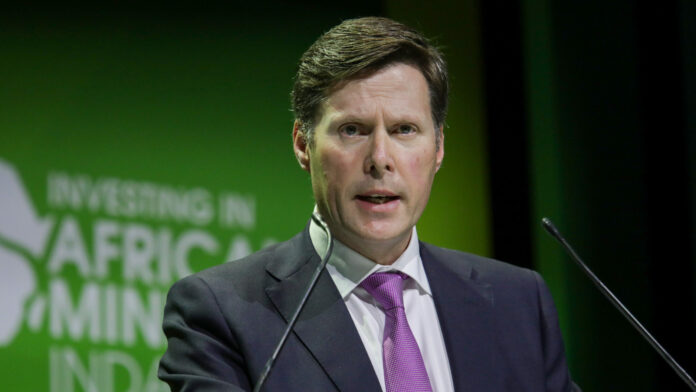
DUNCAN Wanblad, CEO of Anglo American labelled BHP’s two-step demerger and takeover proposal as “disrespectful” to South Africa, adding that his company’s treatment of the country’s government would have been “more private”.
Wanblad was commenting during a presentation in which he set down his company’s plans to unbundle Anglo American Platinum (Amplats) and demerge or sell De Beers.
He was withering of BHP: Anglo’s proposed restructure would retain the group’s presence in its origin of birth whereas the Australian firm had “already left the country”, he said.
“We remain in South Africa. BHP does not. They exit,” he said, adding: “They make us do the work and off they go … that is the unique difference between us and BHP”. In a press call that was intended to seize control of the narrative after three weeks of intense speculation, much of it focused on Anglo’s imminent demise, these comments were the most emotionally charged.
He also acknowledged his proposed restructuring was quicker than envisaged when he alluded to a structural review in February.
“I would have not announced this right now, just a bit later – only because it would have been completely disrepectful to the South African government to announce this in the middle of elections … But I have now no option”.
South Africans go the polls on May 31 with the ruling African National Congress likely to poll less than 50% of total votes – the lowest support since the country’s first democratic elections in 1994.
On May 7 BHP upped its offer for Anglo American to about £27 per share including the value accruing to shareholders from the unbundling of Amplats and Kumba Iron Ore, the 70% owned listed subsidiary. Anglo rejected the second proposal yesterday.
Said Wanblad of Anglo’s original restructuring timeframe: “What I would say is that I would have done it in a different time frame.
“In the roll out of my strategy, which was well underway at time of the BHP offer, I would have engaged South African government and stakeholders in a different sort of way, in a more private sort of way. I would have been more respectful of the situation in South Africa,” he added.
Once of the potential hurdles for shareholders in BHP’s proposal is a capital gains tax, estimated at $2bn on the unbundling of its South African units. It’s unclear whether Anglo’s restructure implies similar costs.
“What I would say is we have been looking at this asset review for quite some time and we have been through all the tax consequences in some detail,” said Wanblad. “I don’t believe there are any fatal flaws and I think [instead] about the strong cash generation of the business. All of the potential tax consequences have been taken into account.”











